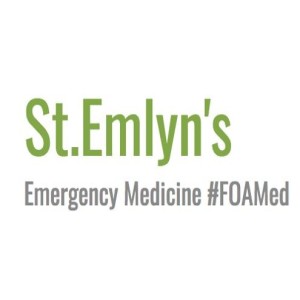More Episodes
Ep 229 - Top Twenty Papers of 2023 - Part 1 - Airway
 2024-04-17
2024-04-17
 1.3k
1.3k
 2024-04-17
2024-04-17
 1.3k
1.3k
Ep 225 - A deep dive into ECMO with Andy Curry
 2023-11-09
2023-11-09
 3.0k
3.0k
 2023-11-09
2023-11-09
 3.0k
3.0k
Ep 223 - July and August 2023 Monthly Round Up
 2023-09-18
2023-09-18
 3.0k
3.0k
 2023-09-18
2023-09-18
 3.0k
3.0k
Ep 215 - March 2023 Monthly Round Up
 2023-05-03
2023-05-03
 3.0k
3.0k
 2023-05-03
2023-05-03
 3.0k
3.0k
Ep 214 - Shock from St Emlyn’s Medical School
 2023-04-24
2023-04-24
 3.2k
3.2k
 2023-04-24
2023-04-24
 3.2k
3.2k
Ep 213 - Sensitivity and Specificity (CAN 10)
 2023-04-17
2023-04-17
 3.2k
3.2k
 2023-04-17
2023-04-17
 3.2k
3.2k
Ep 212 - February 2023 Monthly Round Up
 2023-03-20
2023-03-20
 3.6k
3.6k
 2023-03-20
2023-03-20
 3.6k
3.6k
Ep 211 - Semi structured interviews (CAN 9)
 2023-02-27
2023-02-27
 3.8k
3.8k
 2023-02-27
2023-02-27
 3.8k
3.8k
012345678910111213141516171819
Create your
podcast in
minutes
- Full-featured podcast site
- Unlimited storage and bandwidth
- Comprehensive podcast stats
- Distribute to Apple Podcasts, Spotify, and more
- Make money with your podcast
It is Free
- Privacy Policy
- Cookie Policy
- Terms of Use
- Consent Preferences
- Copyright © 2015-2024 Podbean.com





